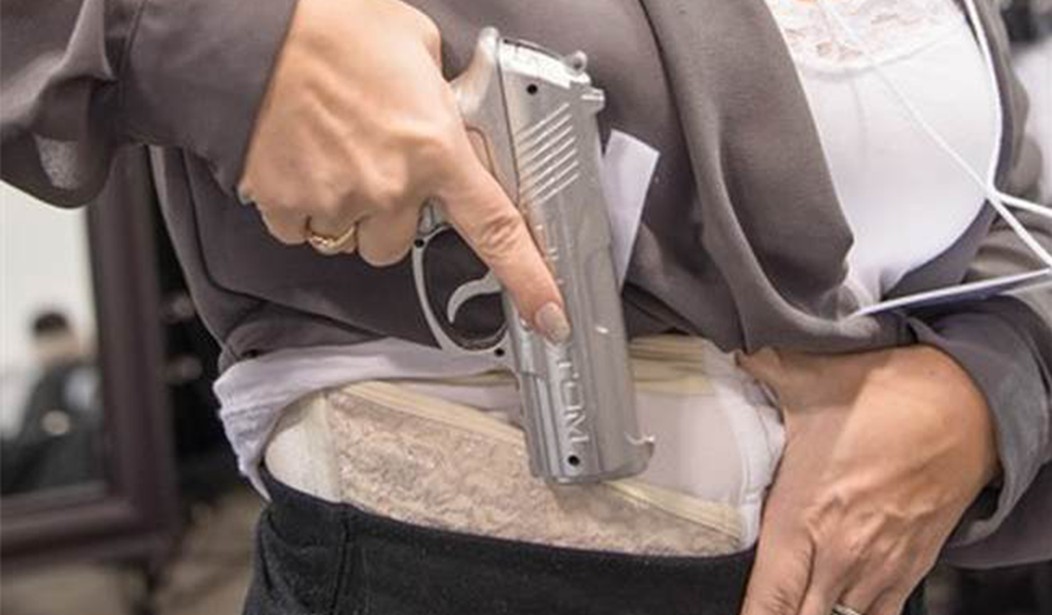In the wake of the Supreme Court decision striking down New York’s “may issue” concealed carry regime that allowed local authorities unfettered power to deny concealed carry applications to anyone they decided hadn’t demonstrated a need for one, applications in many New York counties soared. But after the deceptively named Concealed Carry Improvement Act was swiftly adopted by New York lawmakers in response to the Bruen decision, some counties are now seeing a precipitous drop in the number of applicants.
In Monroe County, for example, more than 1,600 people had applied for their concealed carry license by this time in 2021. In 2022 700 applications had been s submitted by mid-May. This year? Just 267 applications have been dropped off, and local authorities say the CCIA is having a major impact on those wanting to exercise their right to armed self-defense.
Officials suspect the falloff stems from changes in state law making it harder for would-be handgun owners to obtain a permit and buy a firearm. Included in the new rules is a requirement for hours of safety training that has been expensive and, until recently, in short supply.
“Yeah, it’s been four months. Four months to get a class in Rochester,” said Henry Williard, a retired firefighter living in Webster.
That was back in March. Willard completed the two-day training later that month and submitted his application in late April. Now, he waits.
… In Monroe County, applications are down 71% among city residents; 59% among suburbanites. County Clerk Jamie Romeo shares the concern about what’s behind the drop.
“I think the financial cost is becoming more of a barrier than people are taking about,” she said.
It’s not just Monroe County seeing the decline. As WXXI reports, carry applications are also down by 25% in Yates County, while Livingston and Wyoming counties have also seem a noticeable drop in the number of applications compared to last year. Wyoming County has typically issued about 300 permits per year, but this year only 25 applications have been submitted and approved.
For the anti-gun lawmakers who approved the CCIA, this is definitely a feature and not a flaw in the new and “improved” concealed carry statute. But this is also some of the strongest evidence to date that, rather than complying with the Supreme Court’s decision in Bruen, New York chose to defy it instead. While the Court held that “shall issue” carry regimes are presumptively constitutional, the justices also noted that “because any permitting scheme can be put toward abusive ends, we do not rule out constitutional challenges to shall-issue regimes where, for example, lengthy wait times in processing license applications or exorbitant fees deny ordinary citizens their right to public carry.”
Both of those circumstances seem to exist in New York right now. The increased cost of a concealed carry license as well as the burdensome training requirements are having a chilling effect on those who want to exercise their right to bear arms in self-defense.
“It was crazy,” said David Jenkins, founder and director of training with Rochester Personal Defense, which is among those offering the required training course. “We couldn’t have enough slots and classes in October, November and December. We were surprised. December’s usually dead. January’s usually dead. But they’ve been probably our best months in four or five years.”
He continued: “As an educator, I love it. … But as a constitutionalist-minded person, I don’t like it. I don’t think they should have to. It’s the only right that we have to prove that we can exercise.”
In addition to 18 hours of classroom and live-fire training, the state now requires applicants to provide four character witnesses, a list of past and present social media accounts, and to sit for an in-person interview with a judge and get gun safes for their home and vehicle.
“Every week, we probably get 10 or 12 phone calls with people who can’t afford it, or can’t do it in their busy schedules because they’re now working two and three jobs,” Jenkins said. “You know, I’m waiting for the class action lawsuit — for people who can’t afford to do it; can’t afford … to exercise their Second Amendment rights.”
Now that we’ve got some hard data showing the decline in carry applications, a lawsuit specifically challenging the fees (or an amended complaint to one of the existing lawsuits challenging various aspects of the CCIA) is more likely. Based on these figures, it’s pretty clear that the CCIA is doing real harm to the Second Amendment rights of New York residents by making it cost prohibitive for many people to obtain a carry license. This is definitely something the courts need to address, because the longer these ridiculous and punitive mandates remain in place the more harm is done to a fundamental civil right of New Yorkers.
Read the full article here


